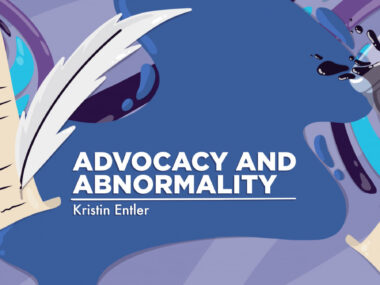My 54th birthday is more than just a number — it’s a gift
What it feels like to outlive an outdated prognosis
Written by |

Today I turned 54. My birthday doesn’t come with a party theme or a cultural rite of passage. However, for someone with cystic fibrosis (CF) like me, it’s a quiet revolution. When I was diagnosed, the average life expectancy was 12 years old.
For me, 54 isn’t just a number; it’s a testament. It stands in defiance of every prognosis printed in dusty medical journals. It’s an age I didn’t expect to see, let alone embody. For us patients my age or older, we’ve not only outlived a prognosis, we’ve outlived a medical era.
I may be a little grayer, slower, and wrinklier, but in this complex, hard-earned, and ever-changing body, aging feels like both a gift and a puzzle. It’s not because I’m vain (although I do miss cartilage and smooth skin), but rather because every sensation and energy dip prompts a series of questions: Is this from CF? Is it related to my transplant? Is it a medication side effect? Or is it just from aging?
When my hips ache, when my thoughts are foggy, or when my sleep feels like a negotiation, I start the mental inventory: Menopause? Tacrolimus? The wear and tear of years of living through virulent doses of antibiotics? Or is this what 54-year-old bodies feel like?
Every question has multiple possible answers. My thought process is an ever-changing intersection of chronic illness, medical innovation, and natural aging.
With my double-lung transplant five years ago, I was given a second life with extra time I didn’t know I’d get. I’m in awe of that gift and understand its complexity. Gratitude is a constant in my life, as is the invisible tether to my donor’s family. They don’t know me, but I think of them on every birthday of mine, because this day isn’t just mine anymore; it also belongs to them. I try to live in a way that honors both the loss and the life behind my lungs.
Still, gratitude doesn’t always feel poetic. Sometimes it’s heavy. Some days I wake up feeling not #Blessed but rather #Bewildered. Gratitude coexists with frustration. Joy rubs shoulders with fear. Despite it all, though, I get to wake up. That’s the baseline I return to no matter the mess of the moment.
Pioneers in uncharted territory
I’m not alone in this strange new landscape. More and more of us in the CF community are crossing into the uncharted territory of middle age, menopause, and Medicare. We’re the pioneers of aging with CF. We’re proof that decades of advocacy, research, and grit have changed the game. CF doesn’t have a cure yet, but at least now we’re asking new questions like, “What does it look like to grow old with a disease that wasn’t supposed to let us?”
We compare notes. We wonder together. Is our fatigue due to aging or a side effect of Trikafta (elexacaftor/tezacaftor/ivacaftor)? Is the joint pain a post-transplant complication or osteoarthritis knocking at the door? Are our thinning bones a side effect of prednisone use or simply a natural part of aging?
Our bodies are medical archives, layered with complexity. Teasing apart the threads to figure out what we can is a tall order, but we try. Not only do we want more years, we also want quality of life during those years. We’re aging, and aging for this community is radical.
Those of us in our 40s, 50s, 60s, and even beyond were raised with a different map. We were taught to live in three-month increments until the next clinic appointment. We prepared for the worst and hoped for the best. We grew up on enzymes and nebulizers, with hospital holidays and whispered prognoses. Now we’re navigating Medicare enrollment and AARP cards, often without a clear guide. Yet we’re doing it together.
Kids born with CF today will grow up in a different world than we did, one where targeted therapies, newborn screening, and personalized medicine are the norm. They may never know what it felt like to endlessly cough throughout childhood or to live on borrowed time. And thank God for that. Besides a cure, that’s the dream.
But as the landscape changes, we hold space for the disorientation, for the grief of those we’ve lost, and for the trailblazers who didn’t make it this far. For the knowing nods we give each other in medical waiting rooms, glances that convey an unspoken “You, too?” and bind us through shared experience.
Fifty-four isn’t a flashy number, but it’s mine, and I claim it with humility, gratitude, and a hint of disbelief. I don’t know what will come next. But I’m here for it — the wrinkles, the gray hair, another year with my daughter, all of it.
I’m happy and proud to be 54.
Note: Cystic Fibrosis News Today is strictly a news and information website about the disease. It does not provide medical advice, diagnosis, or treatment. This content is not intended to be a substitute for professional medical advice, diagnosis, or treatment. Always seek the advice of your physician or other qualified health provider with any questions you may have regarding a medical condition. Never disregard professional medical advice or delay in seeking it because of something you have read on this website. The opinions expressed in this column are not those of Cystic Fibrosis News Today or its parent company, Bionews, and are intended to spark discussion about issues pertaining to cystic fibrosis.








Leave a comment
Fill in the required fields to post. Your email address will not be published.